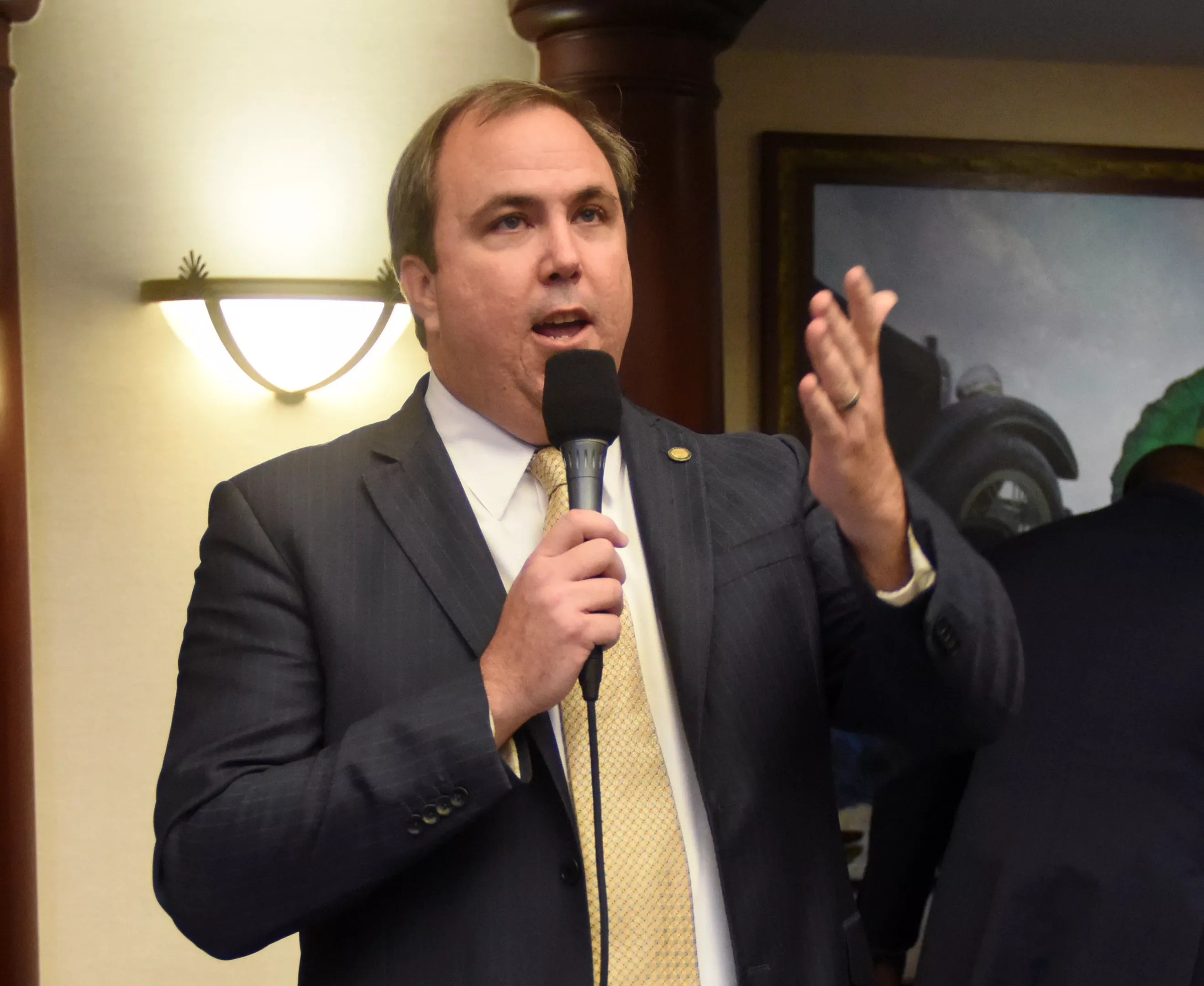
Florida House of Representatives

Audio By Carbonatix
One of the most pressing issues for the pro-Trump wing of the internet is that it’s getting increasingly difficult to be racist and misinformed online nowadays. Since 2016, the world’s major social networking sites – Facebook, Twitter, YouTube, et al. – have cracked down on hate speech, racism, propaganda, and conspiracy theories to prevent American politics from becoming any more psychotic and depraved than they already are.
Online conservatives, racists, and grifters are mad. They keep getting banned online for harassment and racism. So they have begged lawmakers to protect their valiant, brave stances against Sharia law at Pizza Hut and the like. Enter Florida State Sen. Joe Gruters, who chaired Donald Trump’s 2016 Florida campaign and now runs the state’s Republican Party. Gruters is happy to pander to online racists with what he calls the “Stop Social Media Censorship Act.”
Gruters filed the bill on Friday – if enacted, it would prevent social media sites from banning anyone for “political speech.” Amazingly, the bill even prevents social networking sites from claiming that a user engaged in “hate speech” – if a Florida resident felt they’d been banned for engaging in politics online, that person could sue the website for $75,000. If someone sues under the measure, the website would be banned from explaining the person engaged in offensive conduct.
“‘Hate speech’ means a phrase concerning content that an individual finds offensive based on his or her personal moral code,” the proposed law explains, conveniently omitting the fact that “hate-speech” is more typically defined as “speech denigrating a class of people,” such as black or LGBTQ Americans.
“A social media website may not use the social media website user’s alleged hate speech as a basis for justification or defense of the social media website’s actions at trial,” the bill continues.
The bill explicitly states that social media sites can still ban users for threats of violence, falsely impersonating others, harassing minors, enticing criminal conduct, or posting “obscene” or pornographic material. But the bill, astoundingly, includes no rule permitting social websites to ban users for racism or bigotry. Under Gruters’ law, you can
This has been a pet issue of online conservatives for a while. Users banned for racism, bigotry, misogyny, or harassment often claim their First Amendment rights are being violated or that they are being censored for their opinions. In reality, social media sites are, at the moment, privately operated businesses not subject to First Amendment restrictions and can ban whomever they want for any reason. And, much like it’s an utter myth that conservative voices are censored on college campuses, there appears to be no real data showing that social websites are biased against right-wing thought. If anything, the opposite appears to be true: Conservative outlets (including Fox News, the Daily Wire, the Daily Caller, and Breitbart) are consistently the most-shared sites online.
While Gruters’ bill itself contains no specific carve-outs protecting online conservatives, the state senator has basically admitted his goals online. He recently retweeted another social media user who stated that Gruters is trying to “protect Christian and conservative messages” online. The user was trying to get the attention of Candace Owens, the pro-Trump commentator who recently came under fire for her bizarre public defense of Hitler.
@RealCandaceO Florida Senator Gruters introduced the Stop Social Media Censorship Act to protect Christian and conservative messages. Please contact me to get involved – The Bill: https://t.co/Ecru0SPX85 – 3 min. video explaining the bill: https://t.co/kDdAcIV5QB
— John Gunter Jr. (@johntheutahn) March 3, 2019
Had the bill been in place this year, it would have impacted some high-profile cases. Earlier this month, Jacob Engels, a blogger and InfoWars contributor closely linked to the Proud Boys, got permanently banned from Twitter after
But had Gruters’ bill been in place, Twitter would have been barred from banning Engels for that overt act of racism – and Engels could have sued the social media site.
Likewise, it appears the bill would have protected Donald Trump’s trickster political operative, Roger Stone, from being banned from Twitter. In 2017, Stone got booted from the platform after he went on a long rant calling CNN hosts Don Lemon a “cocksucker” and Ana Navarro “fat, stupid, and fucking” Republican operative Al Cardenas (whom she married this past weekend). Stone was banned for engaging in obvious harassment. But he threatened to sue – and under Gruters’ bill, he likely would have won his case.